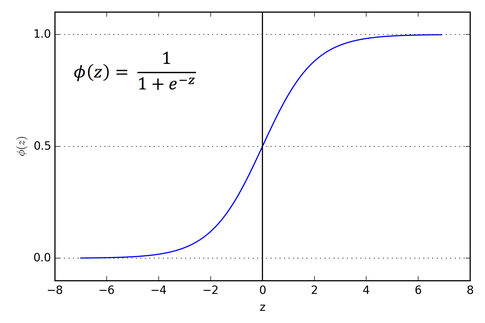Languorous, with its long syllables and proliferation of palindromic vowels (“uorou”) has to be near the top of any list of words that look and sound like what they mean.
With, you know, curt and sussurus and polysyllabic and twee.
Languorous, with its long syllables and proliferation of palindromic vowels (“uorou”) has to be near the top of any list of words that look and sound like what they mean.
With, you know, curt and sussurus and polysyllabic and twee.
Finally baked some loaves I’m basically pleased with.

Sourdough baking occupies this nether space between classic baking and home cooking—you need a formula but you also have to develop and trust your intuition.
There are ten thousand courses and special programs and tutors that promise to help your child excel academically—but all I want for my kid is for them to be kind, quick to laugh, and alive to the world.
Last night I was thinking about this shopping list I found twelve years ago on the back of a twenty, and I realized that “lettuce” might be code for marijuana.

Reading an email newsletter about AI all I can think is, Did an AI write this?
My generation of students got A’s or D’s on the basis of our ability/inability to skim big chunks of text. Is it any surprise our big technology is a type of machine that artlessly condenses and expands text?
Damn Gene Cernan, a little mid-mission moustache and the glow of having just taken the final moonwalk really got you looking good here.

Yasssss

Thunder storm over Fairfax High.

As a Californian, I’m pleased that our voting code insists on proper illocutionary acts. Can you imagine how disappointing it would be if the folks running a polling place didn’t loudly announce the openness of the polls?

Gotta hand it to him, Richard Scarry killed it with Cars and Trucks From A to Z.
THIS is the transit future liberals want.

I’ve always obeyed the law: the longer it takes me to respond to your email, the brillianter and lengthier my reply must be. But what if the better law is the opposite, the longer I put you off, the less I owe you? After three months, a paragraph or two. After two years, four sentences.
Found this copied in an old notebook:
Kids will devour vast amounts of garbage (and it is good for them) but they are not like adults: they have not yet learned to eat plastic.
Ursula K. Le Guin of course. I wish she was still alive today, if only so I could read her blog posts about “AI”.
My sister-in-law is a theater director, and she once told me that a common note she gives actors is: Stop acting out your dialogue and instead just read your lines.
There’s something like that in writing, too: Stop telling the reader what the story means and instead just tell the story.
Boring tech update: on desktop I use MarsEdit to post to Micro.blog and thereby to Jasperland and Mastodon; on iOS I’ve been using the Micro.blog app. But this app is a minor cognitive hazard: when I open it to post the feed often sucks me in. So now I’m posting from Ulysses. So far, so good!
Only just now realized that “no pun intended” is self-refuting, just like, “I’m not arguing with you” and “I’m humble.”
Oh really? Is that so?
It’s a dismal genre, but I have finally received the Worst Campaign Text Of All Time. “AI developer running for Congress” 😵💫 “check out our virtual yard signs”🫨 “Tag me if you share :)”😵

Concept: a blog where I post a poem I like (someone else’s) every day.
The big unexpected discovery of my late twenties was the work of fat activists. How deeply diet culture had f-ed me up! Now in my thirties I’m still unraveling the sweater. Is achievement culture another self-abnegating carousel of misery? The letting go continues.
Walking back from the playground this morning we crossed a patch of sidewalk littered with tangerines. I looked up: hundreds of orange globes in a tree. A few in reach; me on tippy toes. The baby and I ate the sections, spitting seeds in the gutter, delightedly devouring this sour-sweet miracle.
Whatever happened to automatons? I want not at all the robo-cop-dog nor an “AI” customer service agent. I don’t even want a “smart speaker.” I just want a creepy bronze cellist staring at me in the empty hall.
(Syberia, we miss you!)

Update on the sourdough starter: a week after switching to 1:10:10 feeding regime, I mixed up some pizza dough last night and baked the pies off tonight. Soooooo good—and so improved from previous attempts. Shattery, chewy, with a wide open crumb. Could not be more pleased.
I love it when a big gang of crows flies by, banking in the wind, flapping haphazardly, full of play and rowdiness and conversational caws. I love watching their silhouettes pass before the banked white clouds, and I love the ennobled silence after they pass.
Los Angeles, February 2024.

As a writer, editor, and teacher, the best thing this “AI” craze has given me is a good shorthand for describing prose that is grammatical and on-topic but somehow devoid of content and style. Before, I might say, This section is a little lifeless. Now I say, This sounds like ChatGPT wrote it.
“Just remember, this is the worst that this technology is going to be from here on out.” – Marques Brownlee on AI-generated video.
This must be true, but not inasmuch as it implies ongoing linear improvement. More likely is a sigmoid curve—and we don’t know where on the curve we are.
